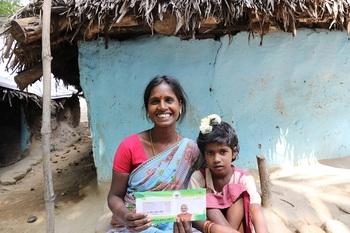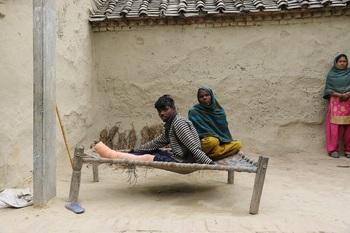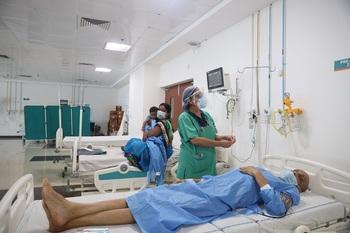Context
Each year, unforeseen expenditure and loss of income as a result of illness push up to 60 million Indian citizens to the brink of poverty. In order to improve health care for its citizens and lay the foundations for universal social protection in the event of illness (universal health coverage, UHC), the Indian Government has introduced a series of state social security benefits. On behalf of the German Federal Ministry for Economic Cooperation and Development (BMZ), the Deutsche Gesellschaft für Internationale Zusammenarbeit (GIZ) GmbH has already advised the Indian Ministry of Health and Family Welfare on introducing the health insurance scheme Rashtriya Swasthya Bima Yojana (RSBY) in an earlier project.
The new programme follows on from the success already achieved and the findings gained to date. It advises the ministry and the newly founded National Health Authority on implementing and improving Pradhan Mantri Jan Arogya Yojana (PM-JAY), the national health insurance scheme created in the second half of 2018.
Objective
The implementation structures and processes of the national health insurance scheme PM-JAY in India have improved. As a result, the country is in a better position to ensure universal health coverage. The Indian Government has laid the foundations for improving the quality of health care for 500 million people.


